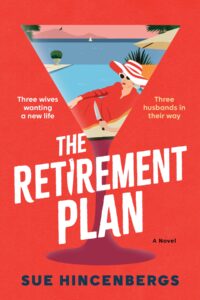The third season of The White Lotus put a spin on the money-worries-as-a-motive-for-murder trope when series creator Mike White had the financially troubled Duke alumni dad contemplate killing his family. While commerce related crime is often a means for a character to get money or keep money, that wasn’t the wealthy patriarch’s motive. Knowing the FBI was closing in and his financial ruin was imminent, Timothy Ratliff was planning to kill his family for another reason completely – to save them from the soul crushing despair of suddenly becoming poor.
If you question the plausibility of that motive, consider that a New York Post article speculated the dysfunctional southern TV clan was inspired by the real-life low country Murdaugh family. Back in 2023, the disgraced lawyer was convicted of the double murder of his wife and son. And just like Ratliff, this Murdaugh dad wasn’t killing to get or keep money. Rather, the prosecutors argued that he killed his family members as a distraction. Yes, you read that correctly. Their case stated Alex Murdaugh killed his wife and 22-year-old son in the hope their deaths would distract investigators from his brewing financial fraud charges and thus garner him some sympathy. Which proves the idiom that sometimes truth is stranger than fiction.
While those are two outside-the-box examples of how money worries can push someone to crime, there is the more straight forward situation where a character just flat out needs money and will do what it takes to get it. That need, and, more precisely, the security money can buy, whether it be the basics of food or shelter, or in the Ratliffs’ case, country club memberships and his and her Rolexes, has long been a device used to push our fictional friends down a path of crime when legitimate options don’t pan out. As financial pressures increase, if relief can be found by crossing a moral line, writers can create a scenario that justifies a character’s decision to walk on the dark side.
And that’s where the fun starts.
In my novel, The Retirement Plan, four couples’ retirement dreams are dashed by a bad investment. Broke and anxious to get their lives back on track the husbands and wives each take that leap to crime. The wives hire a hitman to kill the husbands for their insurance payout, but the husbands are way ahead of them; they’ve stolen millions from the casino where two of them work.
Now that might seem too Ocean’s 11 for some sixty-year-old bald guys with pot bellies —if it hadn’t happened in real life. When I was researching my novel, I came across the story of four employees at a Miami-Dade County casino who stole more than five million dollars over four years. They were only caught because they spent the spoils; buying houses and cars, even prepaying for college educations. To tell you too much more would be a spoiler, but I can say the couples in The Retirement Plan waded into criminal life because they felt they had to.
And that’s why the concept works.
When Walter White was faced with a terminal cancer diagnosis in Breaking Bad, he calculated he needed $737,000 to ensure his family’s comfort following his impending death. Desperate, and with no legitimate options, he started cooking meth. Once he crossed that moral line, it was as though he’d stepped on an airport travelator cranked up to eleven. Walt was full speed ahead, not even slowing down when he went into remission and no longer needed that money. As creator Vince Gilligan pitched it to the studio, this high school teacher was transforming himself from Mr. Chips to Scarface. And we wouldn’t have had five seasons, spin-off prequel and sequel series, and a movie if Walt had been a successful tech tycoon. Walt had to need that money. At least in the pilot episode.
Keeping in the same vein of meth production, which apparently is a very lucrative enterprise, the characters in Dope Thief, a current Apple TV series based on the novel by Dennis Tafoya, are well into their scam of stealing dope from dealers when Ray visits his stepmother and rifles through her overdue bills. Fearful she’s hiding a medical issue, he doubles down on bringing her home some bacon. If the dope thieves had been the enterprising owners of perhaps, Taco Bell franchises, chances are they wouldn’t have hit a bigtime meth manufacturer and landed themselves in seven more episodes.
And then there’s not so much needing money, as just downright wanting it.
We’ve watched Jon Hamm swagger as an ad man in Mad Men, then an oil tycoon in Landmen, and now he’s taken that rich-guy pomp to the new show Your Friends and Neighbors. Minutes into this series, his hedge-fund manager character is toppled from his throne. Out of work, unemployable, and with six-months until the money rug is pulled out from under his ex-wife and the kids he still supports, he has some hard decisions to make. Now, I’ve only seen the first couple episodes but so far, he’s not making good choices. When faced with backing out of a sixty-thousand-dollar charity dinner commitment, he keeps the table he can no longer afford. Needing cash, he starts to siphon off some of the excess wealth in the neighborhood. Slipping into his friends’ homes he steals luxury items – telling himself it’s just until he can get on his feet.
This works because he’s not doing it for kicks, he’s doing it so he can pay for private school. Granted, the practical solution would be to transfer their kids to public school, but I dare you to suggest that to his ex-wife. And this isn’t a spoiler because the opening shot is a bird’s eye view of Jon Hamm lying beside a dead guy. So, one way or another, I’m guessing his perceived victimless burglaries are going to escalate to the ultimate crime – murder.
When we meet the title character mom-slash-mystery writer in Finlay Donovan is Killing it, she’s juggling sticky kids and custody threats from her financially secure ex-husband. Behind in her mortgage payments and struggling to keep her ex at bay, Finlay is perfectly primed to be approached by someone looking to hire her to commit a murder. Desperate to keep her kids, she’ll entertain any option. She’s a character on the edge, and they’re the most fun to watch.
Back to my novel, The Retirement Plan, where Hector, the hitman both the husbands and wives hire, sums this type of situation up as “…sometimes in the business of bad people doing bad things to other bad people, you just try to be the last bad person to make a move.”
Although, call me sentimental, but I truly appreciate a good person doing bad things, for the right reason. And it generally makes for a fun, twisty turny story – my favorite.
***


















